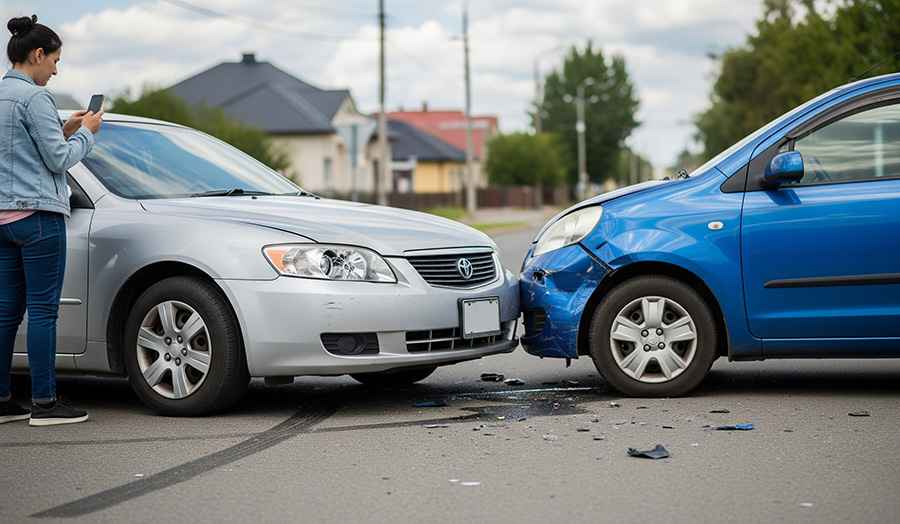Tips to Avoid Car Accidents on the Road and What to Do When one Occurs
Driving can feel routine after years behind the wheel, but staying vigilant is crucial for everyone's safety. The good news? We're currently experiencing the longest sustained improvement in traffic safety in recent U.S. history, with fatality rates dropping to just 1.05 deaths per 100 million vehicle miles traveled in early 2025, the lowest we've seen in six years. While this progress is encouraging, there's still work to do to keep our roads safe.

Prevention is Your First Line of Defense
The best car accident is the one that never happens. Start by eliminating distractions. This means putting your phone away, adjusting mirrors before driving, and keeping conversations light. Your full attention should be on the road ahead.
Maintain a safe following distance, especially during rush hour or bad weather. The old "three-second rule" works well: pick a landmark and count the seconds between when the car ahead passes it and when you do. If it's less than three seconds, back off.
Speed limits exist for good reason, but remember that the road conditions might require you to drive even slower. Rain, snow, construction zones, and heavy traffic all call for reduced speeds, regardless of what the signs say.
Timing Matters More Than You Think in A Car Accident
Your risk level changes dramatically depending on when you're driving. Fatal crashes spike between 6 p.m. and 9 p.m., particularly on weekends when people are heading out for recreational activities. Saturday consistently ranks as the most dangerous day for drivers, often due to increased recreational travel and sadly, impaired driving.
If you must drive during these high-risk hours, stay extra alert. Watch for erratic driving patterns that might indicate an impaired driver, and don't hesitate to pull over safely and call 911. If an accident does occur, contacting experienced car accident attorneys can help protect your rights and guide you through the legal process.
When Prevention Isn't Enough
Despite your best efforts, car accidents can still happen. Your first priority is always safety, so check yourself and passengers for injuries before anything else. If anyone is hurt, call 911 immediately.
Move the vehicles out of traffic if possible, but only if it's safe to do so. Turn on your hazard lights to alert other drivers. This protects you from additional collisions while you handle the situation.
Documentation and Legal Steps
Use your phone's camera to capture multiple angles of both vehicles, paying special attention to license plates and street signs that show your location. Note the time and weather conditions, and write down exactly what you remember about how the accident happened while it's still fresh in your mind.
Collect contact details from anyone who saw what happened. These witness accounts become especially critical given that a troubling 25% of pedestrian deaths in recent years involved hit-and-run drivers who fled the scene. Having independent observers helps ensure the real story gets told.
Protecting Your Interests
It’s a good idea to contact a car accident lawyer, particularly if you've been injured or if there's significant vehicle damage. Many attorneys offer free consultations and can help you understand whether you're receiving fair treatment from insurance companies. This becomes especially important if the other driver was uninsured or if fault is being disputed.
Keep a file with all accident-related paperwork, including police reports, insurance correspondence, and any medical appointments you attend. Even minor aches that develop in the days following an accident can indicate more serious underlying issues that warrant professional evaluation.
While accidents are stressful and scary, our improving safety statistics show that defensive driving and smart choices really do make a difference. Stay alert, drive responsibly, and help keep this positive trend going for everyone on the road.